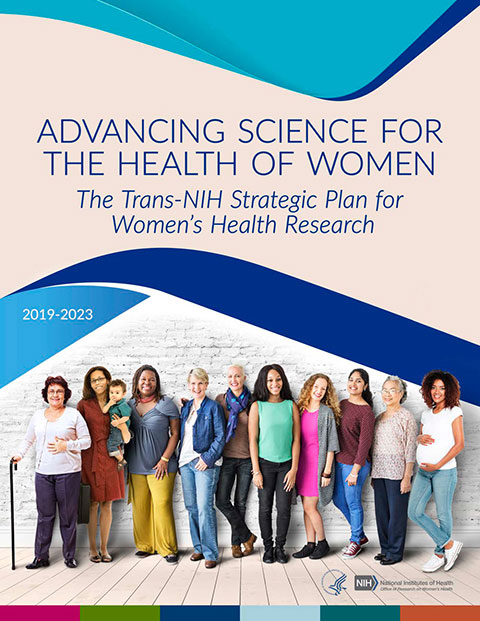ASBMB responds to NIH strategic plan on women’s health research
The American Society for Biochemistry and Molecular Biology submitted comments last month to the Office of Research on Women’s Health about the National Institute of Health’s strategic plan for research on the health of women. The society encouraged the office to modify parts of the plan relating to its re-entry and reintegration supplement awards.
The ORWH released a request for information on July 22 seeking feedback on “The Trans-NIH Strategic Plan for Women’s Health Research” for 2019–2023. The plan has five strategic goals, the fourth of which is to promote “training and careers to develop a well-trained, diverse, and robust workforce to advance science for the health of women.”

ORWH started its re-entry and reintegration supplements in 1992, and the program has been widely successful, with more than 80% of awardees securing academic research careers.
The supplement was established originally to assist investigators and trainees who had left the biomedical sciences enterprise due to extenuating circumstances such as illness, parental care and military duties. More recently, ORWH has extended the supplement to support scientists who have experienced sexual abuse and violence.
However, the society noted in its comments, NIH institutes and centers “do not all use the same application information and criteria. The inconsistent information results in confusion not only among applicants but also among NIH staff.”
Kathy Friedman is an associate professor at Vanderbilt University and a member of the ASBMB Public Affairs Advisory Committee. “Supplements that provide scientists with an avenue to return to a safe and productive work environment after experiencing a life-changing event, including sexual assault or harassment, have proved successful,” she said. “However, this mechanism provides maximal benefit only when the availability and criteria of the awards are clearly and consistently communicated.”
The ASBMB’s four recommendations were:
-
Require all institutes to allow re-entry and reintegration supplements. The society urged ORWH to update requirements of participating institutes, centers and offices to allow re-entry and reintegration awards to be used for all research awards, research project grants, training, centers and capacity-building programs. “Excluding these programs from eligibility worsens the inequities underrepresented scientists are already facing,” the society wrote.
-
Use uniform language. The most recent re-entry and reintegration funding opportunity announcement includes language making survivors of sexual discrimination and harassment eligible. The society recommended that ORWH encourage five NIH arms — the National Institute of Arthritis and Musculoskeletal and Skin Diseases, the National Institute of Biomedical Imaging and Bioengineering, the National Institute of Dental and Craniofacial Research, the National Institute of Environmental Health Sciences and National Library of Medicine — to update their funding announcements to reflect the current language.
-
Increase visibility of the program. Investigators and trainees who have left the workforce should be able to easily find announcements for these awards. Many institutes group re-entry and reintegration supplements with diversity supplements. In the society’s comments, it noted that “grouping diversity supplements with re-entry and reintegration awards takes away from the intended use of each program. Notices and information regarding re-entry and reintegration supplements need to be separate from diversity supplements.”
-
Require a mentorship plan for each award. The NIH should require a mentorship plan for each predoctoral and postdoctoral trainee who receives a re-entry and reintegration award. “(A) mentorship plan will give more support and stability for trainees who’ve had time away,” the ASBMB wrote.
Enjoy reading ASBMB Today?
Become a member to receive the print edition monthly and the digital edition weekly.
Learn moreFeatured jobs
from the ASBMB career center
Get the latest from ASBMB Today
Enter your email address, and we’ll send you a weekly email with recent articles, interviews and more.
Latest in Careers
Careers highlights or most popular articles

Upcoming opportunities
Molecule of the year nominations are due Friday! Plus: A new Finding the Funds webinar and LRD seminar are coming up later this month.

Consider an undergraduate summer research internship in government
Our careers columnist offers a rundown of agencies that can provide you with a couple of months of lab experience.

Upcoming opportunities
Putting ASBMB conferences on your radar! Plus: Award nominations are due Friday.

Retiring a research lab
Careers columnist Courtney Chandler talks to Art Spector, a former principal investigator, about making a graceful exit from the bench.

Calendar of events, awards and opportunities
Nominate colleagues for the ASBMB annual awards and your favorite molecule for our inaugural contest!


